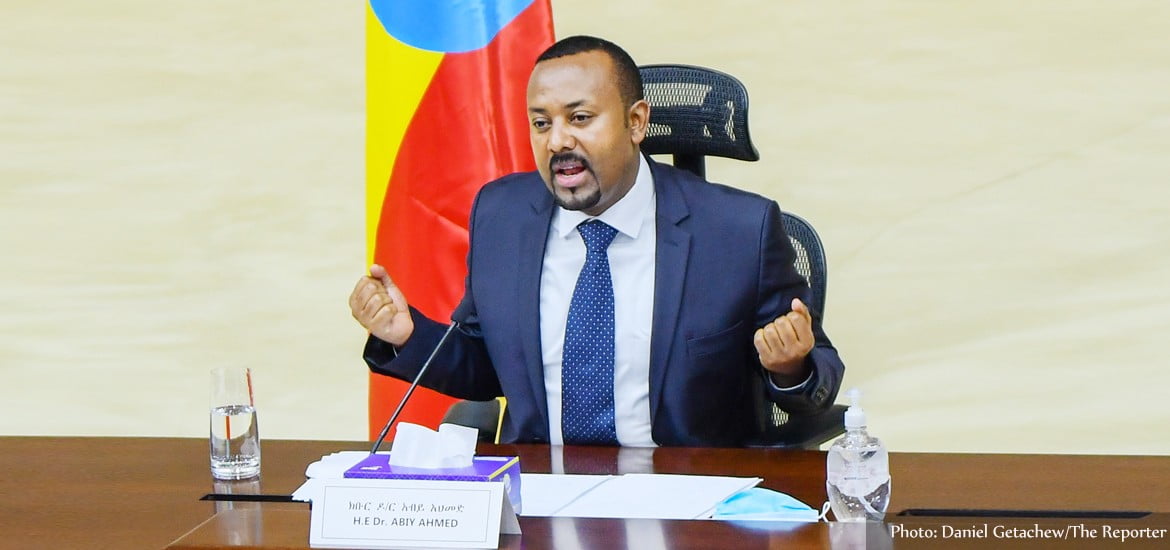By Yonas Abiye
House endorses 476 billion birr budget for new fiscal year
Prime Minister Abiy Ahmed (PhD) expressed his confidence over his government’s ability to manage Ethiopia’s overall debt stress, as his administration presented a total budget outlay of 476 billion birr for the upcoming Ethiopia budget year, early this week.
He said this on Tuesday, before the House of People’s Representative (HPR), while defending a draft budget bill drawn up by his administration for the Ethiopian fiscal year 2013, already kicked off on July 8, 2020.
Out of the total budget allotment, some 133.3 billion birr has been allocated for recurrent expenditure, while the remaining 160.3 billion is budgeted for capital spending, which includes government infrastructural projects to be undertaken in the current budget year.
Apart from that, still a greater amount – 176.4 billion birr – has been set aside to the regional states, which will be channeled in a form of budget subsidy. Meanwhile, some six billion birr is proposed for the financing of the Sustainable Development Goals Programs; the bulk of which will also go to regional states as they implement these programs.
A new item on the budget table this year is the subsidy for the newest regional state – Sidama Regional State – that has joined the Ethiopian Federation officially, at end of this week. Out of the stated regional subsidy, 6.9 billion birr is allocated for Sidama, the 10th regional state of Ethiopia, on top of 200 million birr that it is allowed to collect from tax revenue of the City of Hawassa, which will be the under the joint administration of the new region and remaining Southern Region.
On the revenue side, the federal government projects total revenue of 350 billion birr, including foreign assistance, for the current budget year; out of which the 271.7 billion will be obtained from taxes, while 32 billion birr is planned from non-tax sources. Apparently, the planned tax revenue is estimated to be 6.6 percent of the GDP, showing lower level of tax collection performance in the stated period.
Therefore, the budget plans to run a 126 billion birr deficit for the stated year, which, according to budget speech, will be covered by domestic borrowing (78 billion birr) and external loan (an equivalent of 48 billion birr). The domestic borrowing part of the deficit financing, which is also most inflationary, is kept at 1.8 percent of GDP in line with macro economy targets.
The PM also argued the country’s external debt stress was successfully managed and reduced from what it was two years ago – 31 percent of the GDP – to the current level of 25 percent, thereby showing his administration’s robust debt management strategy.
“This [achievement] has not only proved our capability to manage but also brought back confidence on our ability to pay our debts. In addition, it has also opened the door for further opportunity that enables us to easily secure more loans, if there is the demand,” Abiy told the House.
According to the premier, the country’s nominal GDP is, currently, at 3.4 trillion birr, doubling form 2.1 trillion Birr some two years ago. The attached document presented for lawmakers, along with the endorsed budget bill, says that the bill was prepared with a plan set to drive the macro-economy forward targeting at least 8.5 percent growth rate while aimed at cutting the annual inflation rate to a single digits, as low as 9.8 percent.
As part of economic reform agenda, PM Abiy said, the government has identified three key pillars that were believed to have contributed to the transformation of the macro economic performance.
According to Abiy, the stated three pillars includes: correcting the economic imbalance, addressing structural bottlenecks as well as Enhancing production and productivity, while extensively utilizing the manufacturing sector.
He further told the House that the extent of Ethiopia’s debt level was as high as 31 percent of the total GDP two years ago. Presently, the share of the stated debt has gone down to around 25 percent, he said, adding, the debt was dominantly comprised of commercial loan.
“So, we have successfully undertaken important steps to change our loan scheme from commercial debts into concessional loans,” Abiy told MPs.
Lemlem Hadgu, Head of Budget, Revenue and Finance Affairs Standing Committee, reported to the House that the budget bill is well designed and that it contains the appropriate and pertinent budgetary details which would also address the critical needs of economy; while relieving the economy from COVID-19 induced stress.
Finally, MPs of the outgoing House, unanimously endorsed the draft budget proclamation tabled before them, but not before the grilling the Prime Minister on various pertinent national issues.


